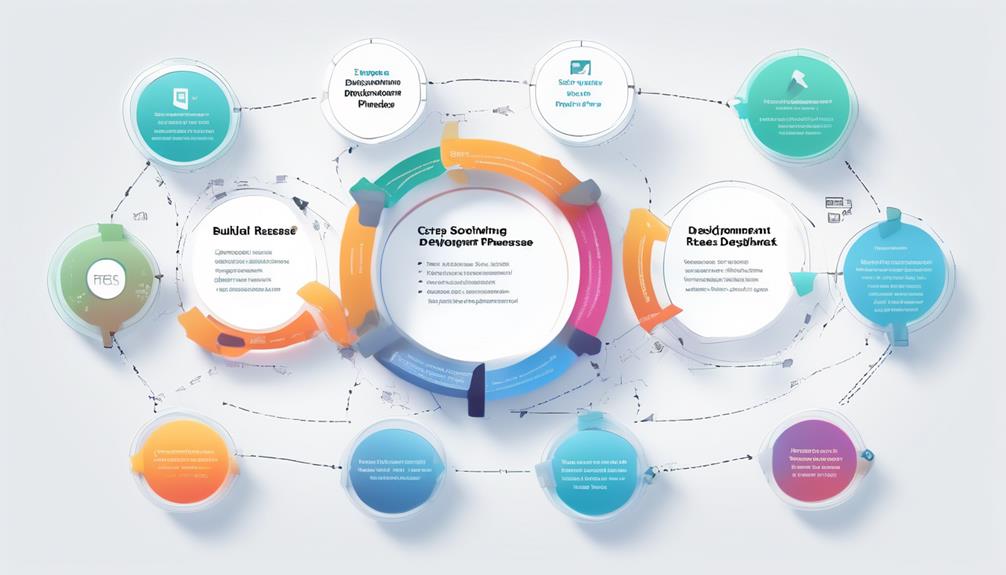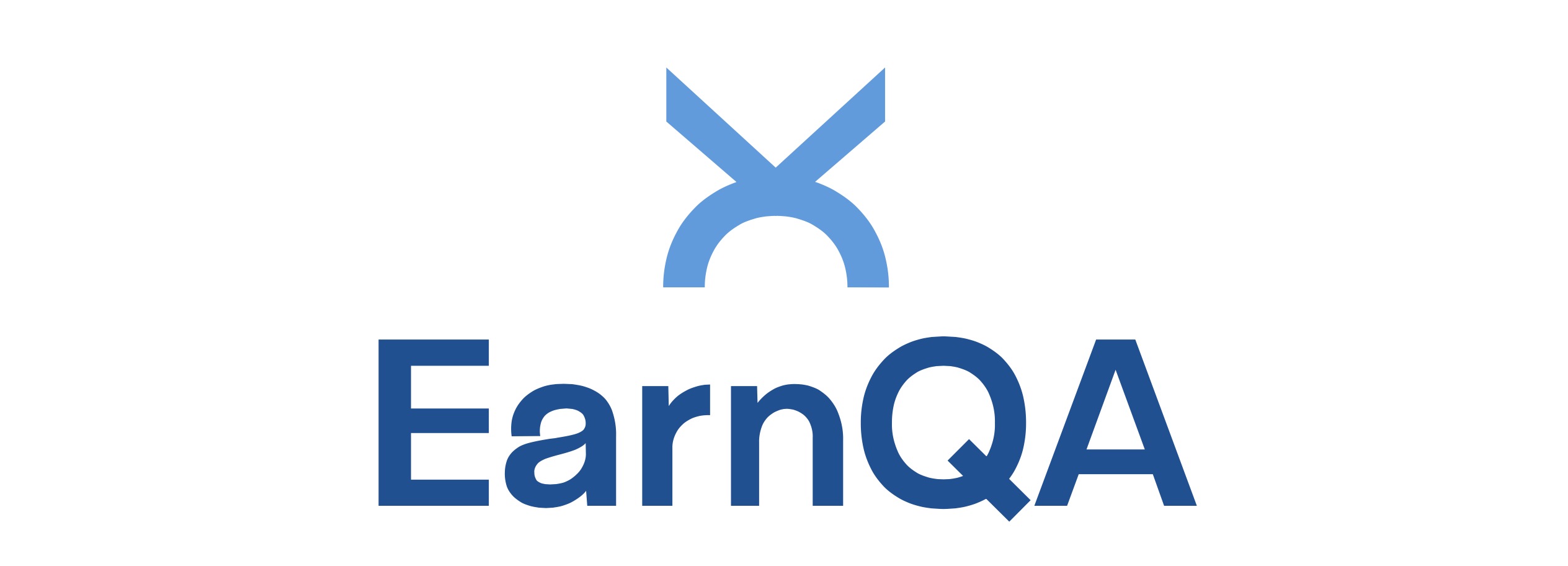Fundamentals of SQA
Behind the Code: Unveiling the Day-to-Day Mysteries of a Software Quality Assurance Analyst!
A software quality assurance analyst ensures that software meets quality standards. They test and identify issues, develop solutions, and ensure a smooth user experience.

Do you understand the importance of ensuring that your new car runs smoothly and safely when you make a purchase?
Well, in the software world, that’s where a software quality assurance analyst comes in. They’re like the mechanics of the digital world, making sure that the software operates as it should and meets all the necessary standards.
But what exactly does this role entail, and why is it so important?
Let’s unpack the details and explore the ins and outs of what it means to be a software quality assurance analyst.
Key Takeaways
- Software Quality Assurance Analysts are responsible for developing and executing test plans to ensure software quality.
- They collaborate closely with the development team to create thorough tests and identify and report software defects for prompt resolution.
- Regular quality assurance audits are conducted to maintain software integrity, and comprehensive test documentation is created and maintained.
- Strong attention to detail, analytical and problem-solving skills, and proficiency in programming languages are necessary for this role.
Responsibilities of a Software Quality Assurance Analyst
We meticulously develop and execute test plans to ensure the quality of software products as part of our responsibilities as Software Quality Assurance Analysts. Our role involves working closely with the software development team to create tests that thoroughly evaluate the functionality and performance of the products. By identifying and reporting software defects, we enable the development team to address issues promptly, ensuring that the final products meet high-quality standards.
Collaboration with the development team is essential as we strive to improve the quality of the software through effective communication and problem-solving. We conduct regular quality assurance audits to maintain the integrity of the products and uphold stringent quality benchmarks. Additionally, we place great emphasis on creating and maintaining comprehensive test documentation, providing a valuable resource for future reference and improvement efforts.
Our commitment to precision and methodical testing procedures contributes to the overall success of the software development process, ensuring that the end products meet or exceed customer expectations.
Skills Required for a Software Quality Assurance Analyst

With a strong emphasis on attention to detail and precision, the role of a Software Quality Assurance Analyst demands a comprehensive set of skills to effectively identify and resolve software defects. Analytical and problem-solving skills are paramount in this role, as QA analysts must be adept at recognizing and addressing software flaws.
Proficiency in programming languages and a strong understanding of software testing methodologies are essential for ensuring the quality of software products. Attention to detail and accuracy is crucial for creating and maintaining thorough test documentation, which is a key aspect of the quality assurance process.
Additionally, the ability to work effectively in a team environment is important for collaborating with the development team to resolve issues and ensure that high-quality software is delivered. Strong organizational skills and interpersonal communication are also necessary for liaising with developers, project managers, and customer support.
In the tech industry, possessing these skills is vital for excelling in QA analyst jobs and contributing to the development process with precision and expertise.
Salary Information for Software Quality Assurance Analysts
While the median annual salary for Software Quality Assurance Analysts is $75,650, it’s important to note that this figure can vary based on factors such as experience, location, and industry. When considering salary information for QA analysts, it’s crucial to understand the following:
- Top paying industries such as finance and insurance, computer systems design, and management of companies and enterprises can offer higher salaries.
- Entry-level positions may provide lower salaries, but there’s potential for growth with experience and additional certifications.
- Quality assurance analysts with advanced degrees or specialized certifications may have higher earning potential.
- The job outlook for tech jobs, including software quality assurance analysts, remains strong, and many companies maintain high standards for compensating these professionals.
Understanding the nuances of salary information for software quality assurance analysts can provide valuable insight for those considering this career path. It’s important to research specific companies, industries, and regions to gain a comprehensive understanding of potential earning opportunities within the field.
Career Advancement for Software Quality Assurance Analysts

To advance in their careers, software quality assurance analysts can pursue relevant certifications and engage in continuous learning to stay abreast of industry best practices and emerging trends. This commitment to professional development enhances job prospects and earning potential. Additionally, specializing in specific industries or technologies can open up opportunities for advancement. As software quality assurance analysts gain experience and expertise, they may aim for management positions or transition into roles such as project manager, DevOps engineer, customer experience leader, enterprise architect, or IT manager. Building a network and fostering industry relationships can also lead to consulting or auditing roles. Exploring alternative titles like quality technician, quality auditor, quality coordinator, quality assurance tester, or quality control supervisor can provide diverse career paths within the quality assurance field. Below is a table summarizing some potential career advancement options for software quality assurance analysts:
Career Advancement Options Description Relevance Obtain Relevant Certifications ISTQB or CSTE certifications to enhance job prospects Demonstrates commitment to quality standards set within the software development life cycle Continuous Learning Workshops, conferences, and on-the-job training programs Staying updated on industry best practices and emerging trends Specializing in Industries Enhance skills in specific industries or technologies Expanding opportunities for advancement within specialized domains
Work Environment for Software Quality Assurance Analysts
In the work environment of software quality assurance analysts, meticulous attention to detail is essential for identifying and reporting software defects accurately.
As Quality Analysts, we typically work in an office setting, collaborating with development teams and other QA analysts. Our work environment necessitates a focus on detail, conducting testing to ensure products perform according to user requirements and industry standards.
Strong written and oral communication skills are crucial for explaining processes, reporting defects, and collaborating effectively with team members.
Additionally, QA analysts often work closely with cross-functional teams, including developers, project managers, and customer support. This collaborative environment underscores the importance of effective communication and teamwork in achieving quality assurance goals.
Frequently Asked Questions
What Is the Role of a Software Quality Assurance Analyst?
As a team, we understand the role of a software quality assurance analyst involves ensuring the quality of products through meticulous testing. This includes identifying and reporting software defects, collaborating with the development team to address issues, and meticulously creating and maintaining test documentation.
Additionally, we develop and execute thorough test plans to ensure the highest quality standards are met. Our attention to detail and methodical approach guarantees mastery in our work.
What Does a Quality Assurance Analyst Do?
We meticulously evaluate product conditions and testing processes to ensure adherence to design standards and identify issues.
Our collaboration with other QA analysts ensures effective testing methods and high-quality products.
Our strong communication skills allow us to explain processes, describe products, and collaborate effectively.
Our responsibilities include testing, analyzing, and documenting findings to ensure the quality of software, products, and systems.
We take great pride in our precise and methodical approach, ensuring mastery in our work.
What Are the Qualifications to Be a Software Quality Assurance Analyst?
To qualify as a software quality assurance analyst, we require a bachelor’s degree in computer science or a related field and may benefit from relevant certifications such as ISTQB or CSTE.
On-the-job training and mentoring programs are crucial for gaining practical experience.
Additionally, strong analytical and problem-solving skills are essential.
Proficiency in programming languages and knowledge of software testing methodologies are also necessary for success in this role.
What Does a Software Quality Assurance Do?
In software development, quality assurance analysts ensure the delivery of high-quality products that meet design standards. We verify adherence and collaborate to ensure effective testing methods. We also communicate effectively to address concerns.
Implementing and documenting testing plans, test cases, and test scripts is a crucial part of our role. Through this process, we are able to identify and report defects. This helps to improve the overall quality of the software.
An interesting statistic is that 88% of organizations have increased their software testing budgets. This emphasizes the importance of our role in delivering top-notch products.
Conclusion
In conclusion, software quality assurance analysts play a crucial role in ensuring the reliability and functionality of software products.
According to the U.S. Bureau of Labor Statistics, the employment of quality assurance analysts is projected to grow 10% from 2018 to 2028, faster than the average for all occupations. This statistic highlights the increasing demand for professionals in this field, making it an attractive career choice for those with the necessary skills and qualifications.
At the helm of our content team is Amelia, our esteemed Editor-in-Chief. Her extensive background in technical writing is matched by her deep-seated passion for technology. Amelia has a remarkable ability to distill complex technical concepts into content that is not only clear and engaging but also easily accessible to a wide range of audiences. Her commitment to maintaining high-quality standards and her keen understanding of what our audience seeks are what make her an invaluable leader at EarnQA. Under Amelia’s stewardship, our content does more than just educate; it inspires and sets new benchmarks in the realm of QA education.
Fundamentals of SQA
Navigating Software Quality Assurance Job Locations
Looking for jobs in software quality assurance? Explore various industries such as technology, healthcare, finance, and more to find opportunities in software quality assurance.

As we explore the world of software quality assurance, it appears that we have come to a pivotal point, surrounded by various paths that lead to different career opportunities.
The demand for professionals in this field has been steadily growing, and the avenues for SQA jobs are as diverse as the industries that rely on robust software.
Curious to know where these opportunities lie and how to embark on a fulfilling career in software quality assurance?
Stick with us as we unravel the thriving locations for SQA jobs, highlight the in-demand job titles, and offer strategies for landing coveted roles in this dynamic field.
Key Takeaways
- Insurance companies like COUNTRY Financial and Honeywell, finance companies like AmeriFlex, aerospace giants like Boeing, and technology solution providers like Origami Risk LLC offer job opportunities in Software Quality Assurance.
- Thriving locations for SQA jobs include Bloomington, IL, Alpharetta, GA, and Madison, AL.
- SQA professionals can transition into roles in product management, DevOps, and quality engineering.
- In-demand SQA job titles include Software Development Engineer in Test (SDET), Sr Software Quality Specialist, Software Quality Assurance Analyst, Software Technical Analyst, and Quality Assurance Engineer.
SQA Job Opportunities by Industry
In our exploration of SQA job opportunities by industry, we find that various sectors offer a diverse range of positions for professionals in the field.
Insurance companies such as COUNTRY Financial and Honeywell are seeking skilled individuals for roles like Software Quality Assurance Analyst and Quality Assurance Engineer.
Finance companies like AmeriFlex are hiring for Quality Assurance Analyst jobs.
Aerospace giants like Boeing are offering positions for Quality Assurance Analysts, Engineers, and Software Development Engineers in Test (SDET).
Technology solution providers like Origami Risk LLC are seeking Sr. Software Quality Specialists and Quality Assurance Engineers.
These positions require proficiency in Agile methodologies, Python, database operations, GitLab pipelines, life insurance processes, performance testing, and cloud-based SaaS solutions.
The sheer breadth of opportunities across these industries reflects the growing demand for QA professionals and the diverse career paths available, including transitions to product management, DevOps, customer experience leadership, and enterprise architecture.
Thriving Locations for SQA Jobs

Thriving in various locations such as Bloomington, IL, Alpharetta, GA, and Madison, AL, SQA jobs offer diverse opportunities with remote work options and hybrid schedules, reflecting the adaptable nature of the field.
These locations are home to companies such as COUNTRY Financial, Honeywell, Boeing, and Origami Risk LLC, which actively seek SQA professionals. These positions often focus on insurance processes and Agile methodologies.
With over 15,000 SQA job opportunities in the United States, there’s a robust demand for SQA professionals across different job titles and companies.
Additionally, SQA professionals can leverage their organizational ability and critical thinking skills to transition into roles in product management, DevOps, and quality engineering.
Continuous learning is crucial for SQA professionals to stay updated with industry trends, performance engineering techniques, and software test automation tools.
This adaptability and the diverse opportunities available in these locations make them thriving hubs for SQA jobs.
Career Paths for SQA Professionals
Exploring various career paths for Software Quality Assurance (SQA) professionals involves considering the diverse opportunities available in the field and the potential for leveraging skills in areas such as product management, DevOps, and quality engineering. As SQA professionals, we can advance our careers by transitioning into roles such as Quality Assurance Analyst, Software QA, or Quality Assurance Manager. The table below outlines the key responsibilities and skills required for each of these career paths:
Career Path Responsibilities Required Skills Quality Assurance Analyst Develop and execute software test plans, identify defects, and ensure compliance with quality standards. Strong analytical skills, attention to detail, knowledge of testing methodologies and tools. Software QA Oversee the entire software development process to ensure product quality, identify areas for improvement, and implement best practices. In-depth understanding of software development lifecycle, coding skills, communication abilities. Quality Assurance Manager Lead a team of QA professionals, establish quality standards, and collaborate with cross-functional teams to enhance overall product quality. Project management, leadership, strategic planning, and decision-making skills.
These career paths offer SQA professionals the opportunity to progress into more challenging and rewarding roles, leveraging their expertise to drive quality and innovation within the software development lifecycle.
In-Demand SQA Job Titles

With a growing demand for skilled professionals in the field of Software Quality Assurance (SQA), numerous job titles have emerged to cater to the diverse needs of the industry. These titles include Software Development Engineer in Test (SDET), Sr Software Quality Specialist, Software Quality Assurance Analyst, Software Technical Analyst, and Quality Assurance Engineer.
Each of these positions plays a critical role in ensuring the quality and reliability of software products. The Software Development Engineer in Test (SDET) is responsible for developing and implementing testing processes within the software development lifecycle, while the Sr Software Quality Specialist oversees and manages the quality assurance processes within a company.
The Software Quality Assurance Analyst focuses on identifying and resolving software defects, ensuring that the final product meets quality standards. Similarly, the Software Technical Analyst and the Quality Assurance Engineer roles involve analyzing, testing, and evaluating software systems to ensure they meet specified requirements and standards.
These in-demand SQA job titles reflect the varied responsibilities and specializations within the software quality assurance field, offering opportunities for professionals with diverse skill sets and expertise.
Strategies for Landing SQA Jobs
As professionals seeking to secure positions in Software Quality Assurance (SQA), we can capitalize on our expertise in Agile methodologies and proficiency in Python, along with a deep understanding of data structures, to qualify for SQA roles at esteemed companies like COUNTRY Financial and Honeywell. To enhance our chances of landing SQA jobs, we should also consider gaining experience in developing GitLab pipelines and acquiring knowledge of life insurance processes, which are sought after by companies like AmeriFlex, Boeing, and Origami Risk LLC. Additionally, developing software solutions, supporting testing and problem-solving, and executing quality assurance testing will prepare us for SQA roles at various companies, including positions like Software Quality Analyst – Manual Tester at Cantaloupe Inc, Optomi, Vaporstream, Inc., and IDR, Inc.
Strategies for Landing SQA Jobs Gain expertise in Agile methodologies Proficiency in Python Deep understanding of data structures Develop GitLab pipeline experience Acquire knowledge of life insurance processes Explore software testing and problem-solving Transition to different roles using transferable skills Explore app development for expanded career opportunities Pursue positions at actively hiring companies
Frequently Asked Questions
What Is the Job of a Software Quality Assurance?
As software quality assurance analysts, we develop and execute test plans and cases to ensure software quality. We collaborate with cross-functional teams to identify and report defects, conducting thorough regression testing.
Strong knowledge of testing methodologies, test case design, and test automation tools is essential. This role offers an average salary of $78,000 per year, with opportunities for career growth and specialization.
Continuous learning is crucial to stay updated and access career advancement opportunities.
Is Software Quality Assurance in Demand?
We find that software quality assurance is indeed in high demand, with over 15,000 available jobs in the United States.
Skills in Agile methodologies, Python, database operations, and GitLab pipelines are sought after.
The average salary for QA analysts is $78,000 per year, with potential to earn up to $110,000.
Continuous learning is essential, focusing on performance engineering, software test automation tools, and reducing software defects.
How Hard Is It to Get a Job as a Qa?
Getting a job as a QA can be challenging, but our dedication and expertise make it achievable. We prioritize continuous learning, communication, and collaboration on automation projects.
Our skills open doors to various career paths, such as product management and quality engineering. Staying updated with quality standards and exploring app development enhances our career prospects.
With perseverance and strategic career development, we can secure rewarding opportunities in the dynamic field of software quality assurance.
Where Do QA Testers Work?
Where do QA testers work?
QA testers work in various positions, such as Software Development Engineer in Test (SDET) at companies like COUNTRY Financial and Honeywell. They can also work remotely as Software Quality Assurance Analysts at companies like AmeriFlex and Origami Risk LLC.
These roles require skills in Agile methodologies, Python, data structures, and GitLab pipelines, among others.
QA testers are responsible for designing solutions, executing testing procedures, and collaborating with development teams to resolve software issues.
Conclusion
In the ever-evolving landscape of software quality assurance, opportunities abound like stars in the night sky. With the right skills and determination, SQA professionals can navigate the constellations of job titles and industries to find their perfect fit.
By honing their expertise and embracing new challenges, they can illuminate their career path and reach for the brightest opportunities.
The possibilities are endless, and the journey is full of promise and potential.
Rick, our Software Quality Assurance Writer, is the creative force behind many of our insightful articles and course materials. His unique background in software development, fused with his natural flair for writing, allows him to convey complex QA concepts in a way that is both informative and captivating. Rick is committed to keeping abreast of the latest trends and advancements in software testing, ensuring that our content remains not just relevant, but at the forefront of the field. His significant contributions are instrumental in helping us fulfill our mission to deliver premier QA education.
Fundamentals of SQA
Unraveling the Mystery: Build vs Release in Software Quality Assurance and Test Automation
Understanding the difference between build and release in software quality assurance and test automation is crucial. Learn about the distinctions and how they impact the development process.

Understanding the difference between build and release in the realm of software quality assurance and test automation is like unraveling the complexities of a sophisticated algorithm.
As professionals in this field, we are often tasked with ensuring the seamless functionality and reliability of software products. However, the nuances between build and release can be elusive, and it’s essential to grasp their differences to uphold the integrity of our processes.
Join us as we unravel the intricacies of build and release, shedding light on their distinct roles and significance in the realm of software quality assurance and test automation.
Key Takeaways
- Builds represent specific versions of the software provided for testing purposes, while releases are the formal distribution of the product to customers after testing and certification.
- Builds are internal milestones and are for internal testing and development, while releases are intended for external use by customers.
- The test team is responsible for testing and certifying builds, ensuring thorough testing and tracking changes for each build version.
- Releases may consist of multiple certified builds that have undergone rigorous testing and meet the release requirements, culminating in the delivery of reliable and high-quality software to customers.
Definition of Build and Release
When we talk about software development and testing, the definition of ‘build’ and ‘release’ plays a crucial role in understanding the progression of a product from development to customer deployment.
A build represents a specific version of the software that’s provided to the test team by the development team for testing purposes. It’s an internal milestone and is primarily used for testing and development.
On the other hand, a release is the formal distribution of the product to customers after it has been thoroughly tested and certified. It’s intended for external use and signifies that the software is ready for customer deployment.
The test team, which includes Software Testing, Quality Assurance, and testing tools expertise, is responsible for thoroughly testing and certifying a build. Once the build passes all the necessary testing techniques and the established test plan, it’s then released to the customers.
It’s important to note that a release can consist of multiple builds, each representing a version of the software that has gone through the rigorous automated testing and quality assurance procedures before being certified for customer deployment.
Association With Testing

With our expertise in software testing and quality assurance, we closely associate both builds and releases with our thorough testing and certification processes, ensuring the software meets the highest standards before customer deployment. Here’s how we link builds and releases with our testing activities:
- Testing Tools: We utilize specialized testing tools to conduct comprehensive testing of each build to identify and resolve any software bugs or issues.
- Test Cases: Our test team develops and executes a set of test cases specifically designed for each build to ensure its functionality, performance, and reliability.
- Performance Testing: We conduct rigorous performance testing on builds to assess their scalability, stability, and responsiveness under various conditions.
- Version Control: We meticulously manage and document each build version to track changes and ensure that the certified build aligns with the release requirements.
Basis for Distinguishing
To distinguish between the concepts of build and release in software development, we rely on their distinct functions and objectives within the development and deployment process. The basis for distinguishing between build and release lies in their specific roles in the software development lifecycle. The table below summarizes the key differences between build and release:
Aspect Build Release Purpose Provide a version for testing Distribute the product to customers Intended Use Internal testing and development External use by customers Responsibility Test team is responsible for testing Formal distribution to customers Composition Represents a version of the software May consist of multiple certified builds
The difference between build and release is rooted in their distinctive functions and objectives. While a build is primarily intended for internal testing and development, a release is the formal distribution of the product to customers. The test team plays a crucial role in certifying a build, ensuring that it meets all requirements before it is released to customers. This distinction forms the basis for understanding the roles of builds and releases in software development and testing.
Occurrence in Development Cycle

In our exploration of the concepts of build and release in software development, we now turn our attention to their respective occurrences in the development cycle. Understanding the timing and context of builds and releases is crucial for a seamless software development process.
- Build Occurrence: Builds occur frequently during the development cycle, often multiple times a day. They’re the result of integrating code changes into the main codebase and are essential for continuous testing and validation.
- Release Occurrence: Releases are less frequent compared to builds. They typically occur when a new version of the software is ready for deployment. Releases undergo rigorous testing and certification by the test team to ensure the software meets quality standards.
- Integration with Testing: Builds are closely integrated with testing activities, providing the test team with the latest version of the software to conduct their tests. Releases, on the other hand, mark the culmination of extensive testing efforts and signify the readiness of the software for deployment.
- Version Management: Builds often involve versioning the software to keep track of changes, while releases mark significant milestones in the version history, signifying a stable and certified version of the software for deployment.
Significance in Software Quality Assurance
Significance in Software Quality Assurance lies in the meticulous testing and certification process that ensures the reliability and functionality of the software before its formal distribution to customers.
The difference between a build and a release is crucial in this context. A build represents a version of the software provided to the test team for internal testing and development. It’s the responsibility of the test team to thoroughly test and certify the build, ensuring that it meets the required quality standards.
On the other hand, a release is the formal distribution of the product to customers after it has been tested and certified. A release can encompass multiple builds, each representing a version of the software that has undergone the necessary testing and certification.
This distinction is significant in software quality assurance as it ensures that the software is thoroughly evaluated and validated before it’s made available to customers, minimizing the risk of potential issues or malfunctions.
The meticulous testing and certification processes within software quality assurance play a vital role in delivering reliable and high-quality software to end users.
Frequently Asked Questions
What Is the Difference Between Build and Release in Testing?
We differentiate between build and release in testing by understanding their distinct roles.
A build refers to the compilation of source code into an executable software application for testing.
A release, on the other hand, involves deploying a tested build to the end-users.
This distinction is crucial in software quality assurance and test automation as it ensures that the tested and verified software is effectively delivered to the end-users.
What Is a Release in Software Testing?
A release in software testing signifies the finalized application, ready for customer delivery. It undergoes rigorous testing and certification by the testing team before being handed over to the customer.
Unlike builds, releases are less frequent and no longer require testing. As a result, the testing team offers the release to customers, signifying that it has met all necessary quality standards for deployment.
What Is a Build in Qa?
In QA, a build refers to the version of the software provided for testing by the development team. It serves as a snapshot of the codebase for internal testing and development.
Our test team is responsible for certifying the build by running tests and ensuring it meets requirements. If the build fails any tests, it can be rejected.
This process is crucial for maintaining the quality and reliability of the software product.
What Is the Difference Between System Testing and Release Testing?
System testing focuses on evaluating the entire system’s functionality and performance. This type of testing encompasses various stages like integration testing and acceptance testing. The goal of system testing is to ensure that the system meets requirements.
Release testing, on the other hand, is specifically geared toward ensuring that the software is ready for production release. It involves final assessments to guarantee the readiness of the software for deployment. This includes checks for compatibility and stability.
Conclusion
In conclusion, the distinction between build and release is crucial in software quality assurance and test automation. Understanding the difference helps ensure that products are thoroughly tested before being distributed to customers.
It’s like a safety net, providing a layer of protection for users. By adhering to this process, we can confidently deliver high-quality software that meets the needs and expectations of our customers.
Rick, our Software Quality Assurance Writer, is the creative force behind many of our insightful articles and course materials. His unique background in software development, fused with his natural flair for writing, allows him to convey complex QA concepts in a way that is both informative and captivating. Rick is committed to keeping abreast of the latest trends and advancements in software testing, ensuring that our content remains not just relevant, but at the forefront of the field. His significant contributions are instrumental in helping us fulfill our mission to deliver premier QA education.
Fundamentals of SQA
Become a Software Quality Assurance Engineer
Interested in becoming a Software Quality Assurance Engineer? Here's a guide on how to become one, including the necessary skills, education, and career path to pursue.

When examining the professional journey of a software quality assurance engineer, it is crucial to grasp the vital role they have in guaranteeing the functionality and quality of software products.
Imagine a scenario where a mobile banking application suddenly crashes when a user attempts to transfer funds. The frustration and potential financial impact on the user could be significant. This is where a software quality assurance engineer steps in, meticulously testing and analyzing the application to prevent such issues.
Understanding the skills and steps required to embark on this career can be the key to making a meaningful impact in the software development industry.
Key Takeaways
- QA Engineers play a crucial role in monitoring every stage of the product development process and suggesting corrections and improvements.
- Attention to detail, communication, time management, problem-solving, and strong listening skills are essential skills for QA Engineers.
- QA Engineers should have technical skills such as coding, understanding the SDLC, writing test plans, familiarity with test automation tools, and effective manual testing techniques.
- To become a QA Engineer, one should earn a relevant degree, gain practical experience through internships or field work, pursue an Associate in Software Testing, and stay updated on the latest testing methods and industry trends.
What Does a QA Engineer Do?
As QA Engineers, we ensure that products meet quality standards before launch by:
- Monitoring every stage of the product development process
- Suggesting corrections and feature improvements
Our role involves:
- Optimizing product functionality
- Improving overall usability
- Analyzing testing results to implement solutions for quality and functionality
We utilize our skills in:
- Attention to detail
- Communication
- Time management
- Problem-solving
- Strong listening skills
Essential technical skills include:
- Coding
- Understanding the Software Development Life Cycle
- Writing test plans
To thrive as a QA Engineer, practical experience is crucial. Additionally, considering relevant certifications and staying informed about the latest trends in software quality assurance is beneficial for career advancement.
Essential Skills for QA Engineers

The acquisition of essential skills is crucial for QA Engineers to excel in their role and contribute to the quality and functionality of software products. To become proficient in this field, QA Engineers need to possess the following skills:
- Writing a Test Plan: QA Engineers must be adept at documenting objectives and testing processes for software products. This involves creating a comprehensive test plan that outlines the strategy, scope, resources, schedule, and deliverables of the testing activities.
- Understanding Test Automation Tools and Manual Testing Practices: It’s essential for QA Engineers to be familiar with both test automation tools like Selenium and effective manual testing techniques. This includes the ability to design, write, execute, and maintain automated test scripts as well as performing thorough manual testing when necessary.
- Strong Understanding of the Software Development Life Cycle (SDLC): QA Engineers need to have a deep knowledge of the different stages of the SDLC, including planning, analysis, design, development, testing, implementation, and maintenance. This understanding allows them to effectively integrate quality assurance and testing activities throughout the software development process.
Mastering these essential skills equips QA Engineers with the technical expertise and proficiency required to ensure the quality and reliability of software products.
Steps to Become a QA Engineer
After mastering the essential skills for QA Engineers, the next step is to outline the specific steps required to embark on the journey of becoming a QA Engineer.
The first crucial step is to earn a relevant degree in computer science or engineering. This provides a strong foundation in software development and quality standards.
Additionally, gaining practical experience through internships or field work is essential for understanding real-world testing processes.
It’s also beneficial to pursue an Associate in Software Testing and gain expertise in automated testing and auditing.
As one progresses in their QA Engineer career, obtaining a decade of experience in the field can open doors to advanced roles such as Software Quality Analyst.
Staying updated on the latest testing methods and industry trends is vital to ensuring the highest quality in product development.
Furthermore, developing technical skills in creating comprehensive Test Plans is essential for maintaining high-quality standards in the software industry.
Career Path for QA Engineers

Embarking on a career as a QA Engineer entails acquiring a relevant educational background in computer science or engineering, gaining hands-on experience, and obtaining industry-recognized certifications. The career path for QA engineers involves a systematic progression towards mastering the skills needed for ensuring software quality. Here are the key steps to navigate this career path:
- Obtain a Degree: A strong educational foundation, such as a degree in Computer Science or Software Engineering, provides the necessary theoretical knowledge and understanding of the software development process.
- Gain Practical Experience: Acquiring hands-on experience in software testing and auditing is crucial. This can be achieved through internships or entry-level positions, where one can develop the technical skills required for quality assurance.
- Obtain Industry-Recognized Certifications: Consider pursuing certifications relevant to software quality assurance, such as ISTQB Certified Tester or Certified Agile Tester. These certifications validate and enhance the expertise needed for a successful career in software quality assurance.
Following these steps, along with continuous learning and networking, can lead to a rewarding and successful career as a software quality assurance engineer.
Salary and Job Outlook for QA Engineers
Upon obtaining relevant educational background in computer science or engineering, gaining hands-on experience, and obtaining industry-recognized certifications, QA Engineers can anticipate a varied salary range influenced by factors such as experience and location.
Entry-level QA Engineers can expect to earn a decent starting salary, with the median annual wage for Quality Assurance Engineers and Testers being around $90,270 in May 2020, according to the U.S. Bureau of Labor Statistics. However, with several years of experience, QA Engineers can earn significantly higher salaries, especially in major tech hubs where the demand for their expertise is high.
Additional certifications, such as those offered by the American Society for Quality, and proficiency in open-source and proprietary software products can also contribute to higher salary prospects for QA Engineers.
It’s important to note that the job outlook for QA Engineers is promising, with a projected growth rate of 3% from 2019 to 2029, in line with the average for all occupations. As the reliance on technology and software products continues to grow, the demand for skilled QA Engineers is expected to remain strong.
Frequently Asked Questions
How Do I Become a Quality Assurance Engineer Software?
First, we understand the importance of becoming a quality assurance engineer in software.
Obtaining a relevant educational background in computer science or engineering, gaining practical experience through internships or entry-level positions, learning programming languages such as Java or Python, acquiring technical skills related to testing tools and frameworks, and considering relevant certifications like ISTQB Foundation Level or Certified Agile Tester are crucial steps in this process.
How Do I Start a Career in Software Quality Assurance?
To start a career in software quality assurance, we need to gain practical experience through internships or entry-level positions in software development or testing. Obtaining a relevant educational background in computer science, engineering, or information technology is essential.
Developing technical skills in software testing tools and programming languages, along with staying updated on the latest industry trends, will lay a strong foundation in software quality assurance.
How Do I Start Working as a QA Engineer?
We start working as QA engineers by obtaining a relevant educational background in computer science, engineering, or information technology.
We gain practical experience through internships or entry-level positions to develop technical skills in software testing and auditing.
We enhance communication skills for effective collaboration with developers, project managers, and stakeholders.
We consider obtaining certifications relevant to software quality assurance to set ourselves apart in the job market.
How Do I Become a QA With No Experience?
To become a QA with no experience, we should pursue a relevant degree or education in computer science or information technology for foundational knowledge.
Gain practical experience through internships or entry-level positions to build hands-on experience in software testing.
Develop technical skills in programming languages and testing tools.
Obtaining certifications from organizations like ISTQB or QAI can enhance knowledge and credentials.
Networking, attending industry events, and staying updated on the latest trends in software quality assurance are also crucial.
Conclusion
In conclusion, becoming a software quality assurance engineer is a complex and challenging journey that requires dedication, expertise, and a commitment to continuous learning.
It’s a career where attention to detail is crucial, and the ability to identify even the smallest of flaws is essential.
With the right skills and experience, a QA engineer can play a pivotal role in ensuring the high quality and functionality of software products, making it a truly rewarding and impactful profession.
At the helm of our content team is Amelia, our esteemed Editor-in-Chief. Her extensive background in technical writing is matched by her deep-seated passion for technology. Amelia has a remarkable ability to distill complex technical concepts into content that is not only clear and engaging but also easily accessible to a wide range of audiences. Her commitment to maintaining high-quality standards and her keen understanding of what our audience seeks are what make her an invaluable leader at EarnQA. Under Amelia’s stewardship, our content does more than just educate; it inspires and sets new benchmarks in the realm of QA education.
-

 Resources and Training1 day ago
Resources and Training1 day agoMaster Selenium Webdriver Training Today!
-

 SQA Techniques and Tools3 months ago
SQA Techniques and Tools3 months agoUnveiling the Role of Software Quality Assurance: What Do They Really Do?
-

 SQA Techniques and Tools3 months ago
SQA Techniques and Tools3 months agoUnlock Your Potential: How to Become a Quality Assurance Software Tester and Earn a Competitive Salary
-

 SQA Best Practices1 week ago
SQA Best Practices1 week agoElevate Your Tech with Software Quality Assurance
-

 Fundamentals of SQA1 week ago
Fundamentals of SQA1 week agoUnderstanding Definition and Scope of Software Quality Assurance (SQA)
-

 SQA Techniques and Tools1 week ago
SQA Techniques and Tools1 week agoExpert Usability Testing Strategies Revealed
-

 SQA Best Practices1 week ago
SQA Best Practices1 week agoTop SQA Best Practices for Quality Assurance
-

 Fundamentals of SQA1 week ago
Fundamentals of SQA1 week agoHow Do You Structure a Quality Assurance Team?














